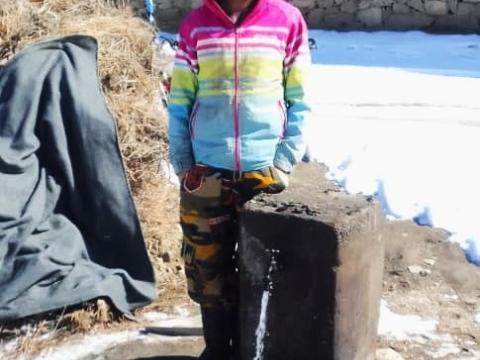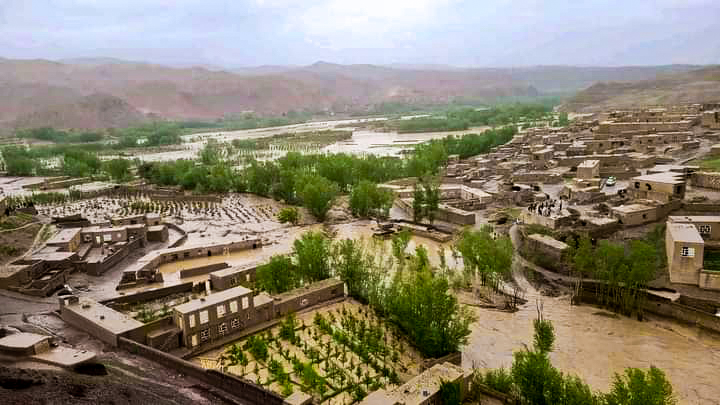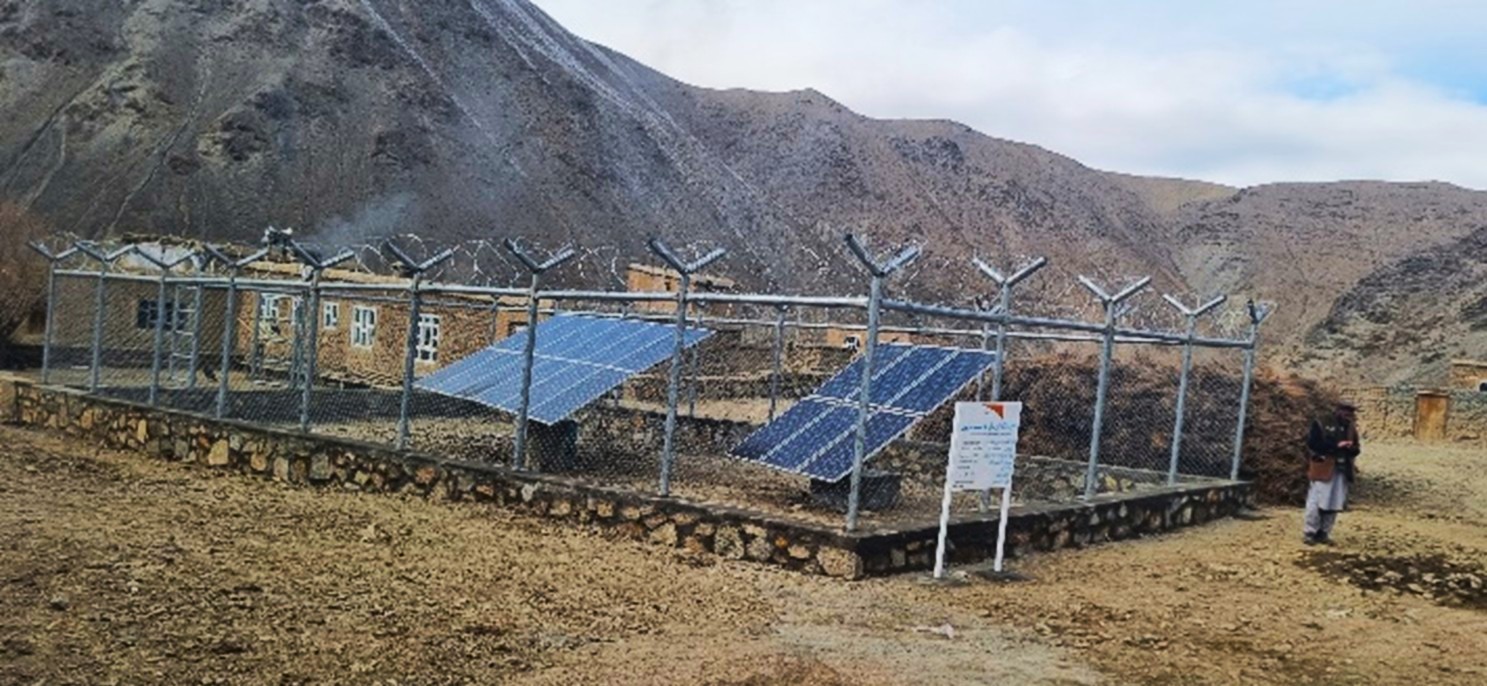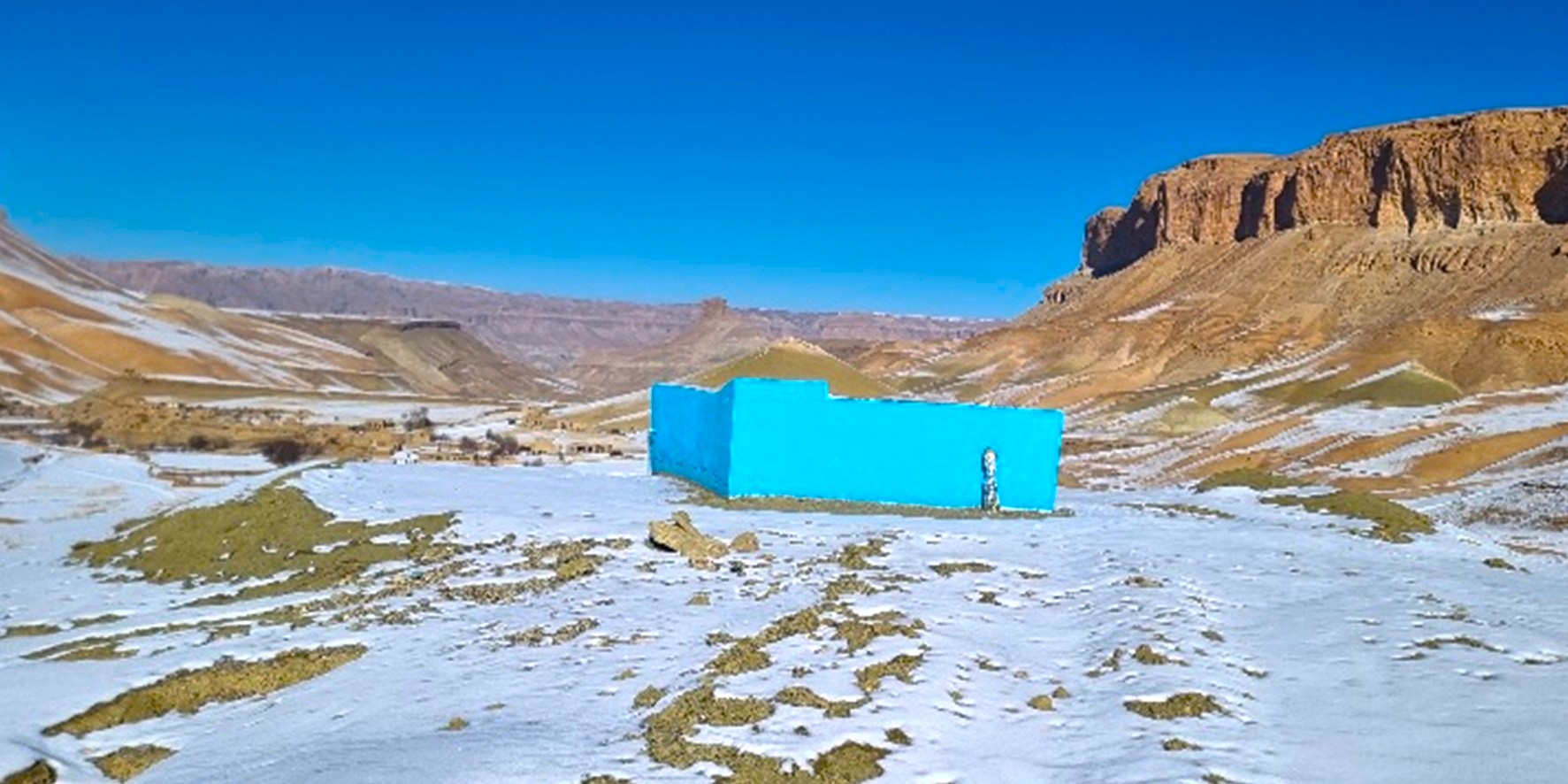Deadly floods, life-giving water: why World Vision put WASH first in Ghor

In 2024, devastating floods impacted some 500,000 Afghans. Lives were lost, homes destroyed, and agricultural lands—the main source of income for many families—were washed away. Vital infrastructure, including water sources, was damaged, leaving vulnerable communities in dire need of support.

Dawlatyar district in Ghor province was among the hardest-hit areas where World Vision operates. Our assessments showed the extent to which floods had exacerbated the struggles of these communities, which were already living with the impacts of economic challenges and climate-related shocks. Above all, the lack of access to safe drinking water heavily impacted children like 11-year-old Majid.
“After the floods, our children had to walk long distances to fetch water,” said Afzal, a resident interviewed during the assessment. “They often missed school, and illnesses like diarrhoea spread quickly due to unsafe water. It broke our hearts to see them suffer.”
While the destruction of assets has been devastating for lives and livelihoods, with agricultural lands, gardens, fruit trees, and homes buried under rubble and stone, the absence of clean drinking water created the most urgent crisis, leaving families desperate for solutions.
In response, World Vision, in partnership with communities and leaders in Ghor province, prioritised the restoration of the village’s water supply system under its Flood Response project, funded by World Vision Australia. The rehabilitation provided access to clean water for 100 families (700 individuals), profoundly transforming their lives.

“Now, our children no longer have to fetch water. They have enough time for their learning,” Afzal shared with relief, after the water system was restored. “Their health has improved too, with fewer cases of diarrhoea and water-related diseases. This clean water is life-changing for all of us.”
Majid, like many other children, now enjoys a childhood free from the burden of unsafe water. “Before, we used to spend hours fetching water and often missed school,” he said. “Now, I attend school in the morning and play with my friends in the afternoon without worrying about whether my family has water.”

Villagers expressed delight at the collaboration with World Vision Australia, calling it a vital intervention they couldn’t have accomplished alone. Vill